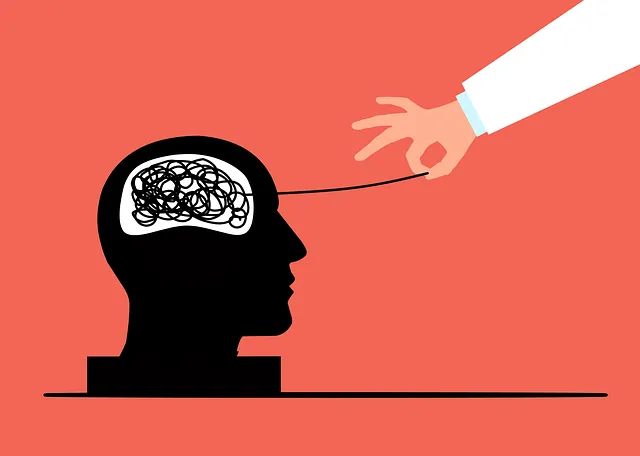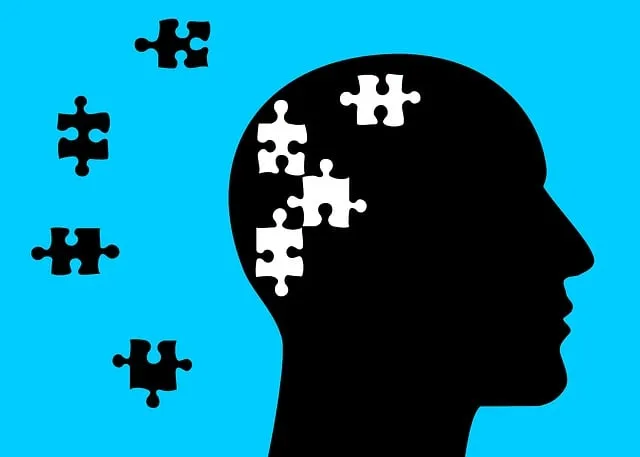Media portrayals of mental illness significantly shape public perception and understanding. Stereotypes in movies, TV, and news can perpetuate false ideas and stigma. Accurate media representations encourage help-seeking and open dialogue. Organizations like Kaiser Permanente, known for its mental health services in Lone Tree, play a crucial role in this by offering programs like Social Skills Training and implementing Risk Management Planning for mental health professionals. Collaborating with media creators to advocate for compassion cultivation practices can reduce stigma and encourage support-seeking behaviors, fostering better mental health literacy.
Mental illness representation in media significantly shapes public perception and understanding of mental health. This article explores the profound impact of media portrayals, highlighting challenges and offering solutions. We delve into successful initiatives like the Kaiser Permanente approach, focusing on their commitment to mental health awareness. By examining effective strategies for positive representation and emphasizing community engagement through education and support, we aim to empower change. Discover how organizations like Kaiser Permanente in Lone Tree contribute to breaking down stigma and promoting mental wellness.
- Understanding the Impact of Media Portrayals on Mental Health Perception
- The Kaiser Permanente Approach to Mental Health Awareness
- Effective Strategies for Positive Mental Illness Representation in Media
- Community Engagement: Empowering Change Through Education and Support
Understanding the Impact of Media Portrayals on Mental Health Perception

Media portrayals of mental illness significantly shape public perception and understanding of various psychological conditions. The way mental health issues are depicted in movies, television shows, and news media can influence how society views individuals struggling with these challenges. Often, these representations fall into stereotypical traps, perpetuating misconceptions and stigma surrounding mental disease. For instance, portraying characters with severe psychiatric disorders as violent or unpredictable reinforces the false notion that such conditions are inherently dangerous.
This has profound implications for those seeking support, especially when considering services like those offered by Kaiser Permanente Lone Tree. Accurate media representations can encourage individuals to recognize their symptoms, seek help, and initiate conversations about mental wellness. Conversely, negative or inaccurate portrayals may deter people from discussing their experiences openly and accessing available resources, such as Burnout Prevention Strategies for Healthcare Providers, which emphasize the importance of Emotional Regulation in managing stress and preventing burnout.
The Kaiser Permanente Approach to Mental Health Awareness

Kaiser Permanente, a renowned healthcare organization, has been at the forefront of promoting mental health awareness and accessibility through its comprehensive approach. The company recognizes that addressing mental illness in media is a crucial step towards reducing stigma and providing support to those in need. One notable initiative is their focus on offering mental health services in areas like Lone Tree, ensuring community members have easy access to professional care.
Their strategy involves implementing various programs such as Social Skills Training, which aims to educate and empower individuals with effective coping mechanisms. Additionally, Kaiser Permanente has developed a robust Community Outreach Program that facilitates open dialogues about mental wellness. Furthermore, they prioritize Risk Management Planning for Mental Health Professionals, ensuring that practitioners are equipped to handle complex cases while maintaining patient safety and well-being.
Effective Strategies for Positive Mental Illness Representation in Media

Media plays a significant role in shaping public perception about mental illness. Therefore, it’s crucial to promote positive and accurate representation. Effective strategies include incorporating diverse narratives, ensuring characters with mental illnesses are well-rounded and not defined solely by their condition, and showcasing recovery stories. Organizations like Kaiser Permanente, known for offering comprehensive mental health services in Lone Tree, can contribute by providing expert insights and promoting Compassion Cultivation Practices.
Additionally, media creators should collaborate with mental health professionals to develop Burnout Prevention Strategies for Healthcare Providers and implement Crisis Intervention Guidance. These practices not only ensure the accuracy of portrayals but also foster empathy among viewers. By adopting these measures, media can play a vital role in reducing stigma, promoting understanding, and encouraging those struggling to seek necessary support, ultimately enhancing mental health literacy across communities.
Community Engagement: Empowering Change Through Education and Support

Community engagement plays a pivotal role in challenging the representation of mental illness in media and fostering positive change. By empowering individuals with knowledge about various emotional healing processes, we can dispel myths and reduce the stigma surrounding mental health issues. Kaiser Permanente, for instance, offers comprehensive mental health services in Lone Tree, highlighting the importance of accessible support within communities.
Through educational initiatives and support groups, community members can actively contribute to Mental Illness Stigma Reduction Efforts. Social Skills Training programs, for example, can help individuals develop coping strategies and enhance their ability to navigate social interactions comfortably. By fostering an environment where open conversations about mental health are encouraged, we create a supportive tapestry that promotes understanding and encourages those facing challenges to seek the help they need without hesitation.
Media representation plays a pivotal role in shaping public perception about mental illness. By adopting strategies that promote positive, accurate, and diverse portrayals, we can foster understanding and reduce stigma. Organizations like Kaiser Permanente, with their comprehensive approach to mental health awareness, are leading the way through education, community engagement, and empowering support systems. For those seeking mental health services in Lone Tree or similar communities, these initiatives ensure better access to care and a more supportive environment. Ultimately, challenging negative media stereotypes is crucial for creating a more inclusive and compassionate society where mental illness is met with empathy and appropriate resources.






